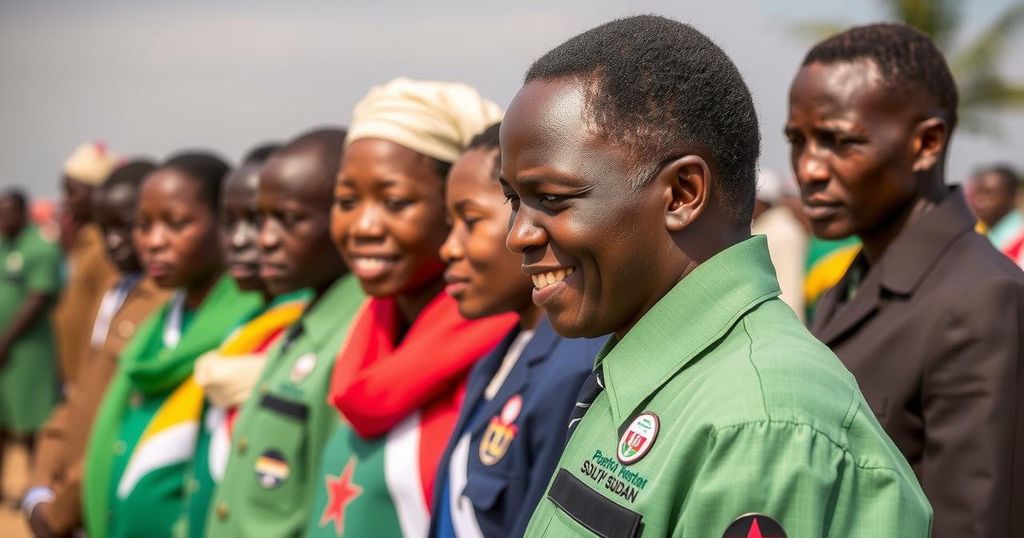The 20th anniversary of the Comprehensive Peace Agreement (CPA) in South Sudan highlights the ongoing struggles with peace and governance. Both the South Sudanese government and the international community have failed to fulfill the CPA’s promises. The government suffers from corruption and limited political space, while international partners have not effectively supported necessary reforms. Moving forward requires joint efforts towards transparency, empowerment of civil society, and accountability to restore hope for the nation’s future.
On January 9, 2025, South Sudan approached a significant milestone: the 20th anniversary of the Comprehensive Peace Agreement (CPA). This historic accord was intended to conclude years of civil conflict and inspire hope among the nation’s citizens. However, despite two decades passing, the envisaged peace, prosperity, and effective governance remain elusive. The transitional government faces escalating criticism for its failures, while the international community, responsible for aiding the transition, has also been inadequate. A thorough evaluation indicates that both the South Sudanese government and its international partners bear shared accountability in navigating the country towards a more promising future.
International allies such as the United States, United Kingdom, Norway, Germany, Canada, and the Netherlands have expressed severe discontent with the transitional government’s inability to foster a conducive environment for credible elections. Their joint statement emphasizes noteworthy issues, including restricted civic and political freedoms, widespread corruption, and the mishandling of the nation’s natural resources. Despite these legitimate concerns, the international community is culpable for its inconsistent engagement and failure to address critical systemic challenges, which inadvertently create dependency rather than promoting self-sufficiency, thereby negating their own calls for reform. A recalibration of their strategies is essential, prioritizing long-lasting capacity-building efforts that engage civil society in meaningful ways.
Facing persistent scrutiny, the South Sudanese government attributes its challenges to the prevailing post-independence conflicts, economic unrest, and the repercussions of the pandemic. Proponents of the government argue that the ambitious vision outlined in the CPA was severely hindered by years of neglect and turmoil. They point to initiatives like the revitalized peace agreement of 2018, which sought to resolve paramount issues related to power-sharing and security. However, severe mismanagement and a deficiency in political will mar the government’s standing. The misallocation of public assets intended for essential services coupled with stringent civic restrictions necessitates a recommitment to transparency and reform.
Key flaws in the international community’s strategy include the failure to address root causes of instability, inconsistent engagement characterized by distraction from South Sudan to other geopolitical crises, and an overreliance on collaborating with elite officials rather than grassroots stakeholders essential for sustainable progress. To reverse these issues, a more comprehensive, grassroots-oriented strategy that promotes local ownership is critical.
The government must make tangible strides toward fulfilling the CPA’s objectives, including enhancing transparency through accountability measures, allowing for an empowered civil society, prioritizing basic services, and ensuring an electoral process that boosts public trust.
Some strides have been made since the implementation of the CPA, marked notably by South Sudan’s independence in 2011 and the establishment of a transitional government in 2020. Nevertheless, the road ahead remains arduous as plans for a permanent constitution and upcoming elections are marred by the need for sustained political resolve.
The journey ahead demands cooperation among governmental and international actors. Recommendations involve the government demonstrating accountability and commitment to inclusive governance, while international partners must offer persistent, sustainable support that enhances civil society and community empowerment. The shared pursuit of peace and prosperity in South Sudan necessitates a collaborative reaffirmation of responsibilities both by the government and its global allies to truly fulfill the CPA’s aspirations for a stable nation.
The Comprehensive Peace Agreement (CPA), concluded on January 9, 2005, marked a historic turning point for South Sudan, which had endured decades of civil strife and governmental oppression. The CPA aimed to establish a framework for peace, governance, and stability, ultimately leading to South Sudan’s independence from Sudan in 2011. Nevertheless, the past two decades have revealed significant failures to realize the hopes of the CPA, as ongoing conflicts, economic instability, and government mismanagement persist. Both the South Sudanese leadership and the international community hold joint responsibilities for the prevailing circumstances, necessitating an urgent reevaluation of strategies to enhance governance and foster sustainable development.
In summary, the 20th anniversary of the CPA serves as a crucial reminder of the long-standing challenges in South Sudan and the pressing responsibilities that lie with both the transitional government and the international community. Although acknowledging progress, it is clear that transformative actions and a strategic realignment are necessary to address corruption, foster civic engagement, and prioritize essential services. The path to fulfilling the CPA’s promise of a peaceful, prosperous South Sudan necessitates shared commitment and accountability from all parties involved, emphasizing the need for collaborative approaches to governance and development.
Original Source: www.radiotamazuj.org






